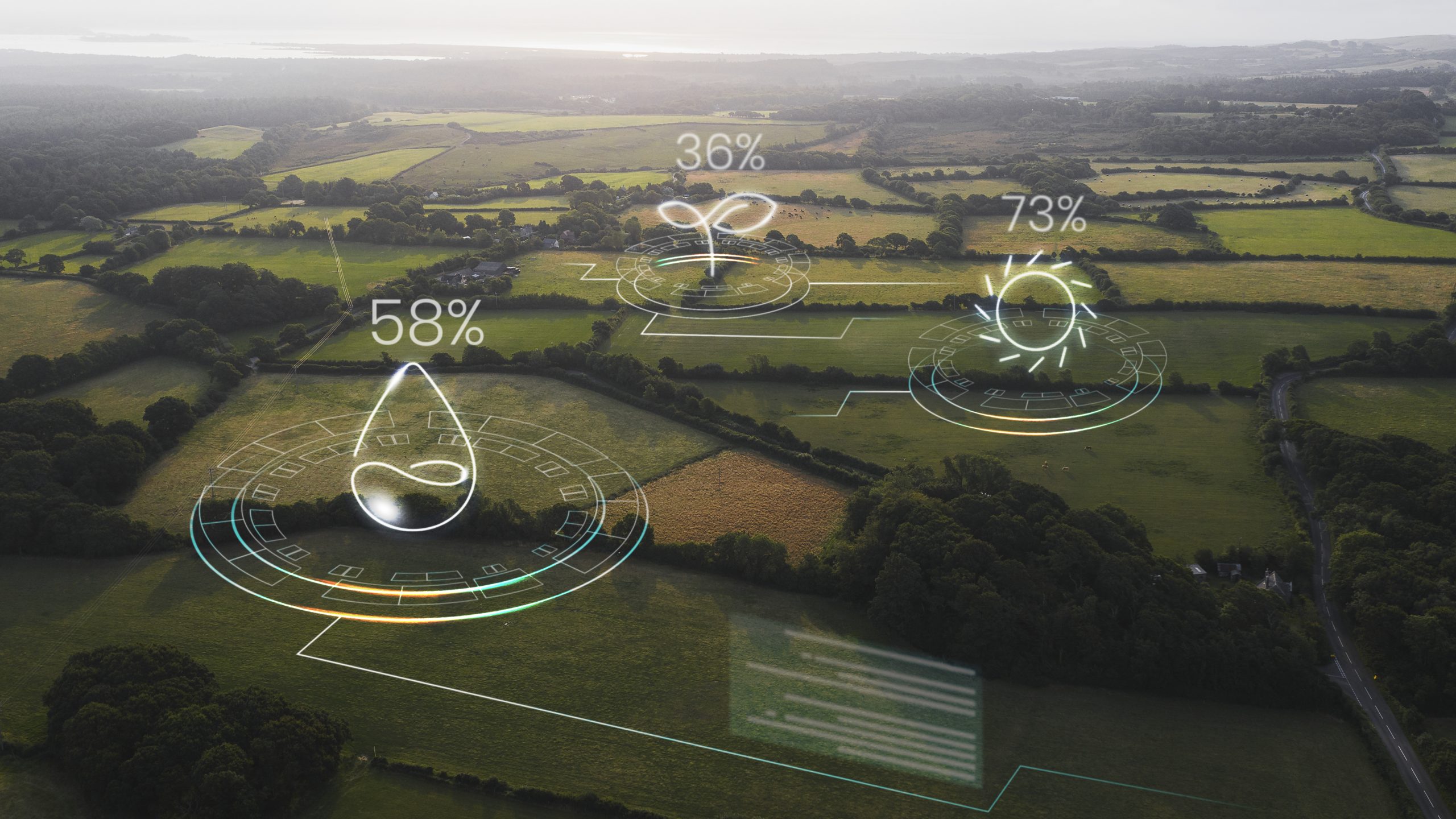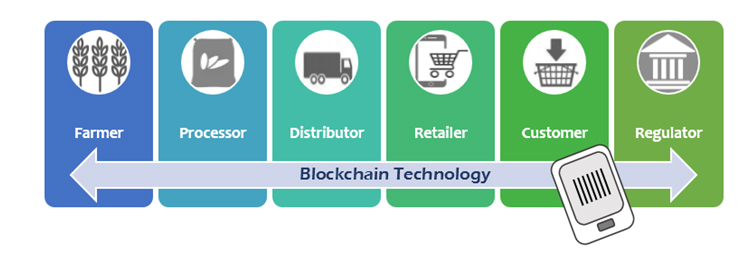Blockchain technology has been in existence for a long time. But it gained the attention of tech enthusiasts for its application in the finance industry. Beyond cryptocurrencies, blockchain has a wide range of applications. It has the potential to revamp many industries from real estate to healthcare, banking, and others. While several industries have started experimenting with this technology, one of the least talked about applications of this is in the agriculture industry.
In this article, we will talk about different applications of blockchain in agriculture and how that can help in the total transformation of the sector.

1. Smart agriculture
Smart agriculture is technology-enabled agriculture that uses things like IoT, Information and Communication Technology (ICT), and Unmanned Aerial Vehicles (UAV), etc.
Application of blockchain technology in smart agriculture:
- The IoT devices like crop sensors collect data like soil ph level, the temperature of the surroundings, humidity, and light, etc. This collected data is cleaned and structured by attributing features like timestamp and demography.
- To make this data more insightful, machine learning algorithms are used. The data is fed into the predictive models of machine learning that can help make predictions. The information that can be fetched using these models includes- crop quality recommendation, crop yield prediction, market demand prediction, and crop identification, etc.
- This insightful value-added data is then added and stored on a blockchain. The blockchain is a distributed ledger holding data that can be accessed by all the stakeholders that are going to join this supply chain.

2. Food supply chain
The most pressing problems in the food supply chain today are food traceability, transparency between all stakeholders, food safety, and quality. Blockchain can help solve all of these issues.
Application of blockchain technology in the food supply chain:
- In a blockchain system, the crop produced is transported from farm to food processing units in IoT-enabled vehicles. These IoT devices store data on temperature conditions during transit. They also record deviations (if any) from the desired food safety standards. Any deviation, if found, makes that batch of produce unfit for processing and can be recalled. This also reduces the carbon footprint of the entire supply chain and also ensures food safety.
- At this stage, the blockchain triggers a smart contract that records transaction data between the farmer and the food processing company.
- Further, the processing unit also stores data during every step of processing on the blockchain system. This data then helps the next entity in the supply chain – the retailers and wholesalers who can judge the quality of food through the data available.
- Once the product reaches its final consumer, he can easily backtrace the entire supply chain and know the origin of the food and other information like the farm location, expiration details, processing conditions, and batch number, etc.
- The availability of the information of the food from its origin to the time it reaches the final consumer, also helps in tracing food contamination.

3. Crop insurance
Apart from the farmer, food processing company, and retailers/wholesalers, other entities that can be made part of the shared platform of blockchain are meteorological departments and the insurance company. This can make the process of claiming insurance quick and efficient.
Application of blockchain technology in the insurance claiming process:
- The weather forecast department can provide useful weather forecast information and share it on the blockchain. The timely availability of weather information can prepare the farmer for unfavorable weather conditions in advance and thus help him in taking preventive measures.
- In case of any loss, quick application for claims can be triggered by the blockchain. The smart contract enables the insurance company to get data on the weather and crop condition. This makes the entire activity of loss assessment and claim processing efficient and quick.
- The blockchain-enabled smart contract automatically triggers claim payment transactions as and when a pre-decided condition is fulfilled.
Blockchain technology has great potential to solve various problems of the agriculture industry. It is in its nascent stage in India while in more advanced nations it has shown promising results. The government is also actively working towards introducing this technology in different sectors of the economy and has released its National Strategy On Blockchain. Not just this, the government has also established the ‘Centre of Excellence for Blockchain Technology’ with the help of National Informatics Centre (NIC). You can read more about this here.
